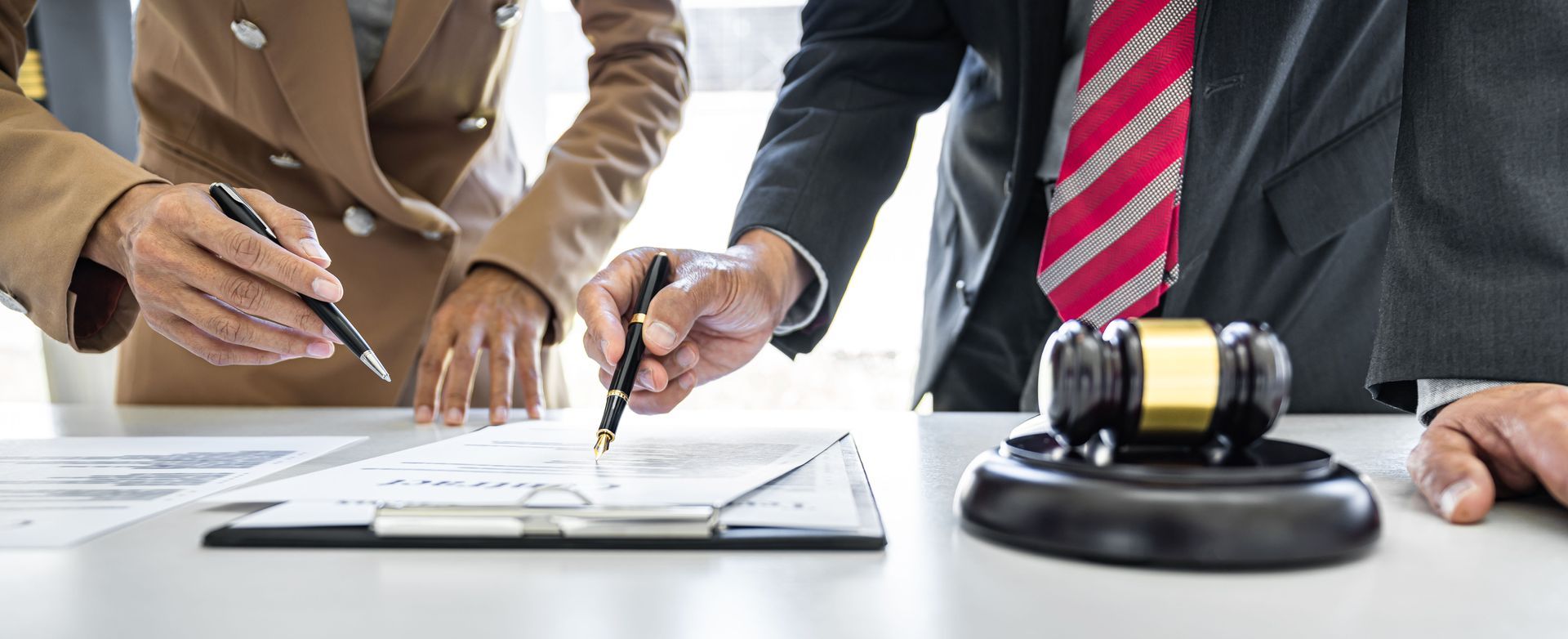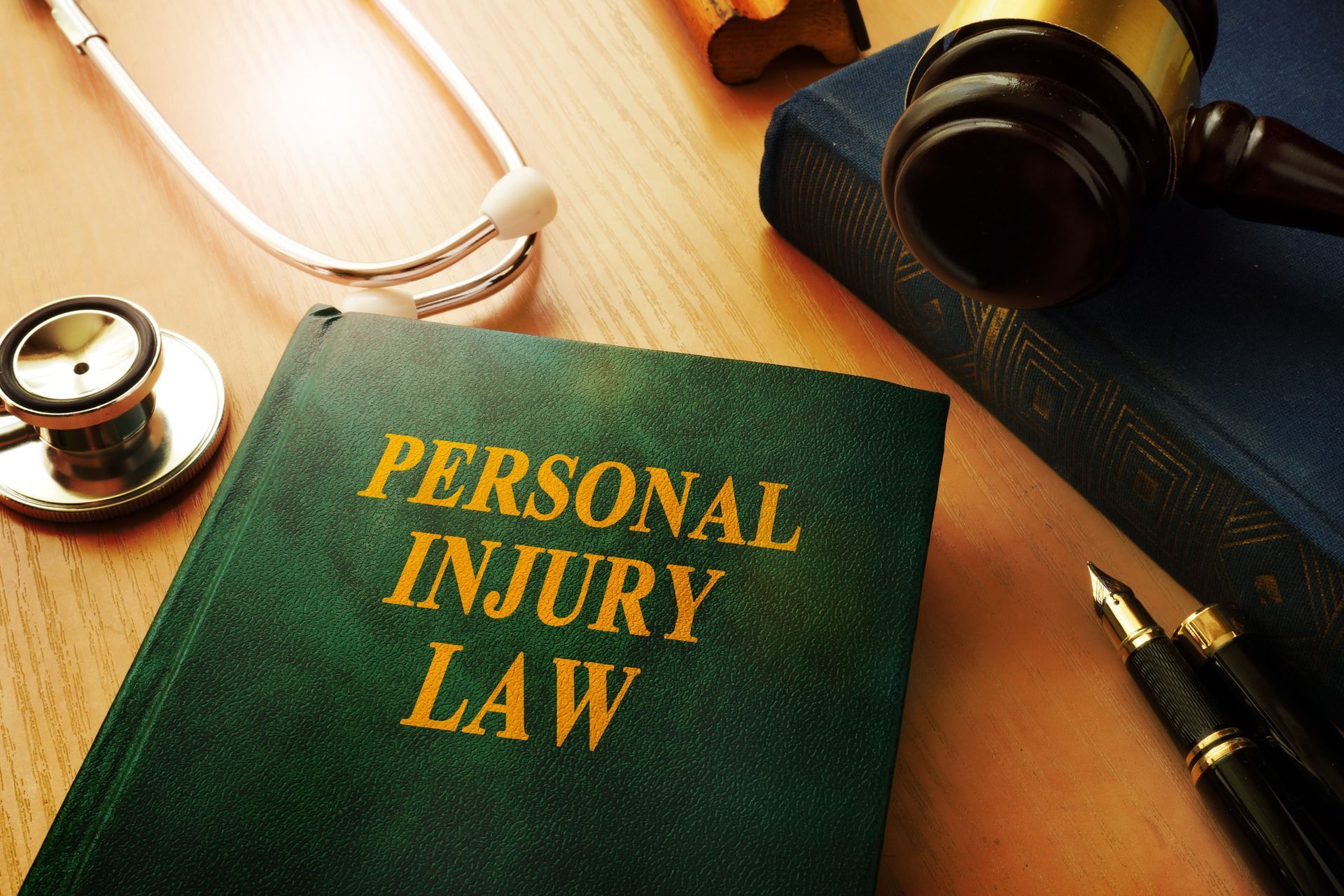November 17, 2025
When faced with an injury due to another's negligence, hiring a local injury attorney can be an essential step in securing the compensation you deserve. Understanding what to expect during this process is crucial for effective collaboration and achieving a favorable outcome. Knowing these steps ahead of time can help you work effectively with your attorney and increase your chances of success.
The Role of an Injury Attorney
Local injury attorneys are experts in personal injury law, which encompasses legal disputes arising from accidents or injuries. They are well-versed in the intricacies of legal procedures, case law, and statutes of limitations related to personal injury cases. Furthermore, they offer invaluable guidance in navigating the complex judicial system, helping to alleviate the stress that often accompanies these types of legal matters. Their expertise ensures that you meet all deadlines and fulfill all obligations required under the law. This professional assistance can significantly impact the overall success of your claim.
In addition to legal expertise, injury attorneys represent your best interests throughout the legal process. They advocate on your behalf to ensure that you receive the compensation you're entitled to as a result of your injuries. As your legal advocate, they are duty-bound to prioritize your needs and objectives above all else. This representation includes negotiating with insurance companies and opposing parties to secure a fair settlement. Their experience in dealing with similar cases positions them to identify reasonable offers and to challenge those that undervalue your claim.
Skilled negotiation and settlement capabilities are crucial aspects of a local injury attorney's role. These attorneys strive to minimize the risk and uncertainty inherent in court proceedings by seeking a reasonable and fair settlement. This often involves extensive discussions with insurance adjusters or opposing counsel. Attorneys employ effective communication strategies to present compelling arguments that strengthen your position. According to IBISWorld, the personal injury lawyers and attorneys industry revenue is expected to reach $61.7 billion in 2025, highlighting the growing demand for these skills.
Initial Consultation
The initial consultation is a critical phase that sets the stage for your entire legal journey. During this meeting, you and your local injury attorney will discuss the details of your case to evaluate its merits. This is your opportunity to ask questions and clarify the legal process. It's also crucial for you to assess whether you feel comfortable with the attorney and their approach to your case. Choosing the right attorney can profoundly influence the outcome of your claim.
During the initial consultation, the attorney will gather essential information pertinent to your case. This includes documentation such as medical records, accident reports, and any evidence you have collected. The attorney will carefully review these materials to assess the viability of your case. They will also ask questions to establish the facts and nuances that will shape your legal strategy. This thorough understanding allows them to provide more accurate and informed guidance moving forward.
Understanding attorney fees and costs is another vital component of the initial consultation. Most personal injury attorneys work on a contingency fee basis, meaning they only get paid if you win your case. This arrangement aligns the attorney's interests with yours since their payment depends on securing a favorable outcome for you. Discussing the fee structure and potential costs upfront helps to avoid misunderstandings later on. Setting realistic outcome expectations at this stage ensures that you are both on the same page regarding goals and possibilities.
Building Your Case
Building a strong case is a multifaceted process that requires meticulous attention to detail. Collecting evidence is one of the primary steps, and it forms the foundation upon which your case is built. This evidence includes everything from police and accident reports to medical records and photographs of the scene. Your attorney will guide you on what evidence is necessary and how to obtain it if you haven't done so already. This rigorous approach is essential for substantiating your claims and supporting your demand for compensation.
Interviewing witnesses is another critical aspect of building your case. Witnesses can provide valuable firsthand accounts that corroborate your version of events. Your attorney will handle these interviews, ensuring that witness statements are consistent and credible. Proper handling of witnesses can make or break a case, as their testimonies often carry significant weight in negotiations and trials. Your attorney's ability to effectively manage this process directly influences the strength of your case.
Navigating the Settlement
Engaging in settlement negotiations is often preferable to pursuing a lengthy and unpredictable trial. The settlement process involves discussions with the opposing party or their insurance representatives to reach a mutually agreeable resolution. Your attorney plays a pivotal role in these negotiations, leveraging their skills and experience to advocate for a fair settlement. It's important to remember that settlement negotiations can be lengthy and may require multiple rounds of discussion. Having a knowledgeable attorney to guide you through this process can help ensure a satisfactory resolution.
Ensuring fair compensation is the ultimate goal of settlement negotiations. Your attorney will assess the total impact of your injuries, including medical expenses, lost wages, and non-economic damages such as pain and suffering. With a comprehensive understanding of your needs, they will push for compensation that adequately reflects your circumstances. Achieving fair compensation involves balancing the desire for a quick resolution with the need to secure the compensation necessary to cover your losses. Your attorney's skill in negotiation is key to striking this balance.
Preparation for Trial
If settlement negotiations do not lead to a satisfactory resolution, preparing for trial becomes the focus. Trial preparation and planning are essential components that require a meticulous approach. Your attorney will draft and refine your case strategy, working through every aspect of your argument to present with clarity and conviction. This preparation includes organizing evidence, finalizing witness testimonies, and crafting persuasive narratives. A detail-oriented approach helps ensure that your case is presented in the best possible light.
Mock trials and role-playing exercises are often used as part of the preparatory process. These simulations allow your attorney to test arguments and witness testimonies in a controlled environment. They also help in identifying weaknesses and refining strategies before the actual trial. Conducting these exercises can significantly enhance your attorney's ability to predict opposing arguments and mitigate potential risks. Additionally, they help build confidence and reduce anxiety for the real trial.
Post-Trial and Follow-Up
Understanding verdicts and judgments is crucial once a trial concludes. The court's decision will determine the outcome of your case, and your attorney will be there to explain the implications in detail. Whether the verdict is favorable or not, there may be additional legal avenues to pursue. In some cases, post-trial motions or appeals may be appropriate. Exploring these options requires careful consideration and strategic planning by your attorney.
Disbursement and settlement of funds are steps that follow a successful verdict or settlement. Once the court or opposing party has agreed to compensation, your attorney will facilitate the transfer of funds to you. This process involves deducting any legal fees or costs associated with your case, as per your agreement. Reviewing attorney performance is another important post-trial activity. Reflecting on their representation helps ensure accountability and provides insight into your overall satisfaction with their services.
Hiring a local injury attorney involves various stages, from the initial consultation to potential post-trial processes. Understanding these phases can help you collaborate effectively with your attorney and ensure that you are adequately prepared for what lies ahead, ultimately increasing the likelihood of a favorable settlement or verdict. If you are looking for a local injury attorney, call Thorson Switala Mondock & Snead LLP today to learn more!











